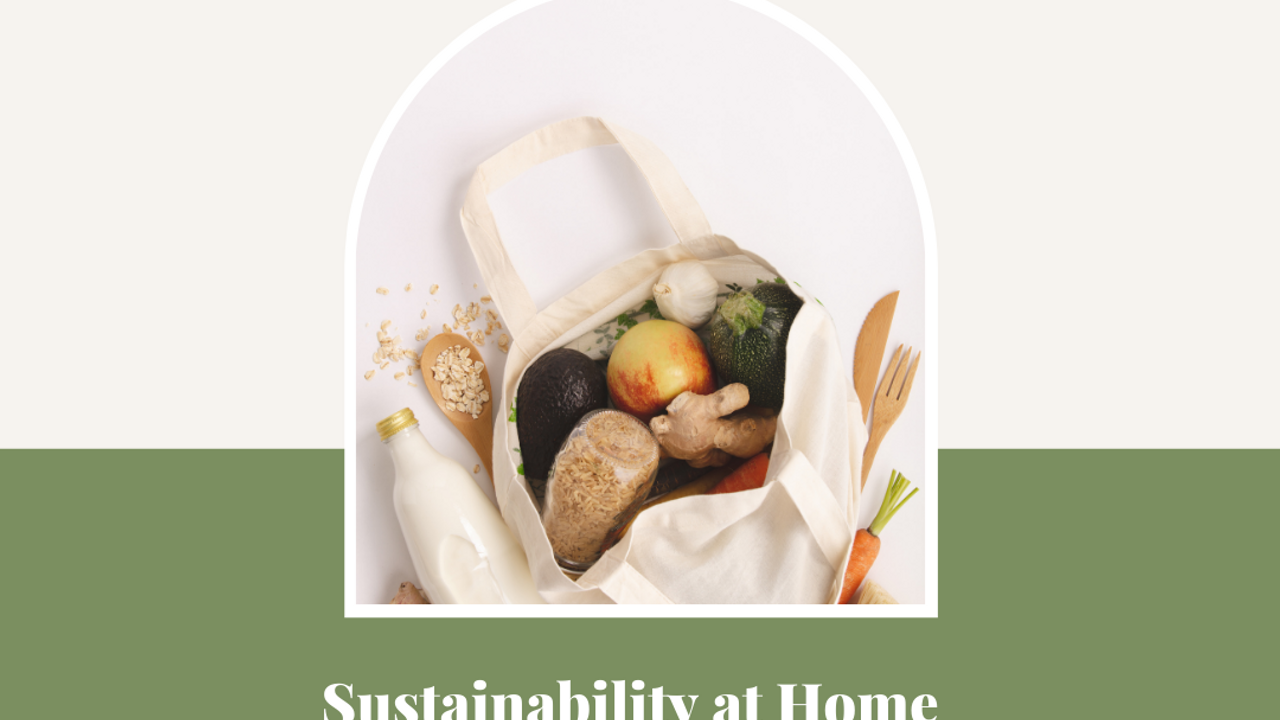Sustainability at Home
Apr 22, 2021
If you have no time, what should you do?
Like every other human, I’m overwhelmed these days. Someone is always asking me to log them back onto Google Classroom after they’ve accidentally crashed their computer by pasting too many poop emojis into the chat. Someone is always asking me to make them a three-course snack. Someone is always shouting, singing, or shoutsinging. In between all of that, I try to work. Of course, I know I’m extremely privileged. I still have a job. And I’m able to work from home, wearing pajamas, and lipstick, and large noise-cancelling headphones to tune out the poop emojis and snack requests.
But I’ve had to let some things go. Things that I was steadily improving in our household before this pandemic walloped the world. Namely, trying to live as sustainably as possible. I’ve never been a make your own organic shampoo gal - I know my limits when it comes to both my time and my chemistry skills. And I generally believe that women have enough to do, without the world foisting impossibly time-consuming home sustainability tasks upon us. Telling us to make homemade toothpaste while 100 corporations produce 71% of the world’s emissions also feels a little like misplaced and misogynistic priorities.
But the sustainable efforts I’ve made, I’ve made because I wanted to. I know that managing to avoid single-use packaging in my kids’ lunches is not going to save us from climate catastrophe. But it felt nice to make these tweaks, when time, budget, and energy afforded it.
The pandemic has caused me to think about household sustainability in a more pragmatic way.
I don’t have time to make homemade granola bars. And I can’t stop the flow of cardboard coming into my house. And we drive now - to take weekend romps outside the city, so my kids can get a little bit of fresh air between screen time. Instead of feeling bad about this, I try to remind myself of three simple rules for sustainability in these taxing times: Play the long game, Think upstream, and Don’t guilt yourself.
The Longest Game
Like child-rearing, becoming more sustainable is a long game. The systems around us make it impossibly difficult to live sustainably (if you’ve proudly schlepped your reusable mug to the coffee shop only to have the barista tell you she couldn’t pour your turmeric latté into it, you know what I’m talking about). Instead, the key is to focus on the big picture - the large, meaningful changes you can work towards to bring down your emissions - things like driving less, making your home more energy efficient, and switching to energy-efficient appliances as time and finances permit.
In my drafty old house this has been a decade and a half long project - we’ve fixed the thermal envelope each time we tackle a room reno. We’ve slowly changed out windows, and replaced aging appliances with more energy-efficient ones. This is the stuff that really matters. So if I’ve gotten a few too many things delivered in cardboard boxes due to a global pandemic, I’m going to be gracious to myself and Let. It. Go. (Also you can do some fun stuff with all that cardboard!) The goal is to focus on the big things and not sweat the small stuff!
Take it Upstream
When I get bogged down with the little things that provide negligible return on recycling investment, I try to think of ways I can solve sustainability problems at bird’s eye view. Trying to recycle all the packaging in a much-needed meal kit that I got delivered is impossible. Switching to a zero-waste food service saved my time and sanity. I’ve solved a problem that plagues me three times a week. And more broadly, this big shift helps push the market to adopt these kinds of changes. Likewise, instead of bringing my own thermos, can I ask the coffee shop to offer real, reusable mugs, so everyone can know the joy of drinking out of a real cup? And help divert a million cups from the waste stream in the process? Maybe not, but worth a (double) shot.
At my day job, I work on climate policy. Because we need to solve the problems of the climate crisis at scale...so that people can live their lives and focus on what matters most - the humans around them.
Guilt is for suckers
The biggest impediment to making these sustainable shifts is guilt - Guilt that I’m flawed, that I waste too much, that I’ve flown too much, that there’s no point in even trying, given my accumulated emissions and how dire the situation is. But guilt is the enemy of progress, and we live this way because the world is this way. This isn’t a get out of jail free card: Kim Kardashian should definitely feel about the cumulative carbon emissions of flying forty of her closest friends to a remote private island. But at the same time, feeling guilty over an occasional take out meal or carbon-intensive endeavour is toxically unhelpful. Instead, we need to just give ‘er, modelling sustainable living as best we can, for our kids, and everyone else’s kids, and the planet.
Good luck! (And may your kids’ chat boxes be free of poop emojis.)
--
Sarah Lazarovic
Sarah Lazarovic is a Toronto mother, author, and climate campaigner. She advocates for the carbon tax and rebate by day as Vice President of Marketing at Clean Prosperity (try our carbon rebate calculator!) and writes the undepressing climate newsletter Minimum Viable Planet by night.
Stay connected with news and updates!
Join our mailing list to receive the latest news and updates from our team.
Don't worry, your information will not be shared.
We hate SPAM. We will never sell your information, for any reason.


